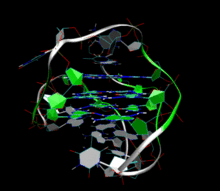 People who have highly demanding jobs and little freedom to make decisions are 23 per cent more likely to experience a heart attack compared with their counterparts without such work stress, according to a study of nearly 200 000 people from seven European countries.
People who have highly demanding jobs and little freedom to make decisions are 23 per cent more likely to experience a heart attack compared with their counterparts without such work stress, according to a study of nearly 200 000 people from seven European countries.
Professor Mika Kivimäki from UCL Epidemiology & Public Health led the research which is published today in The Lancet.
The pooling of published and unpublished studies allowed us to investigate the association between coronary heart disease (CHD) and exposure to job strain – defined by high work demands and low decision control – with greater precision than has been previously possible,” explains Professor Kivimäki.
Our findings indicate that job strain is associated with a small, but consistent, increased risk of experiencing a first CHD event such as a heart attack.
Previous studies examining the impact of job strain on CHD have been inconsistent in their findings, limited in scope, and plagued by methodological shortcomings including publication bias and reverse causation bias.
In this collaborative meta-analysis, Professor Kivimäki and colleagues analysed job strain in employees without CHD who participated in 13 European national cohorts conducted in Belgium, Denmark, Finland, France, Netherlands, Sweden, and the UK between 1985 and 2006. All participants completed questionnaires at the start of the studies to assess job demands, excessive workload, the level of time-pressure demands, and their freedom to make decisions.
People who have highly demanding jobs and little freedom to make decisions are 23 per cent more likely to experience a heart attack compared with their counterparts without such work stress, according to a study of nearly 200 000 people from seven European countries.
Professor Mika Kivimäki from UCL Epidemiology & Public Health led the research which is published today in The Lancet.
“The pooling of published and unpublished studies allowed us to investigate the association between coronary heart disease (CHD) and exposure to job strain – defined by high work demands and low decision control – with greater precision than has been previously possible,” explains Professor Kivimäki.
“Our findings indicate that job strain is associated with a small, but consistent, increased risk of experiencing a first CHD event such as a heart attack.”
Previous studies examining the impact of job strain on CHD have been inconsistent in their findings, limited in scope, and plagued by methodological shortcomings including publication bias and reverse causation bias.
In this collaborative meta-analysis, Professor Kivimäki and colleagues analysed job strain in employees without CHD who participated in 13 European national cohorts conducted in Belgium, Denmark, Finland, France, Netherlands, Sweden, and the UK between 1985 and 2006. All participants completed questionnaires at the start of the studies to assess job demands, excessive workload, the level of time-pressure demands, and their freedom to make decisions.
ᔥUCL


